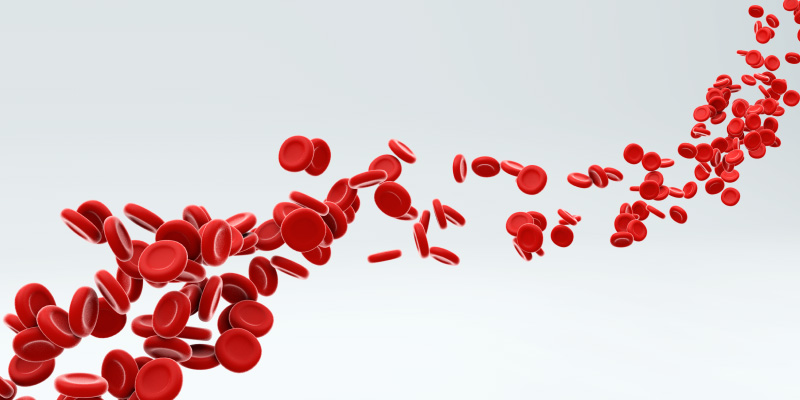Pericarditis is a condition, where the thin or sac-like heart’s membrane (known as pericardium) becomes thick, inflamed, or swollen. It is one of the most common diseases of the pericardium. The causes of this problem are unknown and usually cure over a period of time without any treatment. However, it is always advisable to consult a doctor as soon as one notices any symptoms. It should be the doctor who decides whether a patient needs treatment or not.
The condition can be infectious and non-infectious. Mostly, the causes of Pericarditis are viral infection. In acute Pericarditis, the symptoms generally occur suddenly but don’t last for long. And, in chronic percarditis, the symptoms occur gradually and persistent.
Know More About Pericarditis
Pericarditis generally causes inflammation and irritation of the heart membrane which further causes sharp chest pain.
The heart’s sac-like membrane has layers that consist of fluid in between to prevent friction while the heart beats and protects the heart from infection. However, in Pericarditis, the layers are no longer able to prevent friction or protect infection due to inflammation.
Other inflammation conditions like endocarditis, cancer, etc., can also cause Pericarditis.
Type of Pericarditis
As discussed there are two types of Pericarditis: Acute and Chronic. And, Chronic is further divided into:
- Incessant: This condition occurs within 6 weeks of acute Pericarditis treatment
- Intermittent: This condition occurs after 6 weeks when acute Pericarditis treatment is being reduced.
Some doctors further divide the condition into five groups based on the type of accumulated fluid around the heart:
- Serous: In this, the fluid is transparent, pale, yellow.
- Purulent: In this, there is a white-yellow pus fluid.
- Fibrinous: It consists of fibrin, leukocytes, blood-clotting agent, white blood cells.
- Caseous: It is a form of cell death. The tissues are affected by this condition.
- Hemorrhagic: In this group, a blood-based fluid is involved.
Some Common Facts of Pericarditis
- The heart membrane helps in keeping the heart into the chest wall. Pericarditis occurs when this membrane gets swollen which can cause many problems.
- Pericarditis comes from the Greek word “perikardion,” which refers to the heart surrounding, and “-itis” refers to inflammation.
- It is generally of two types “Acute” that occurs suddenly and lasts for a few days or weeks and “Chronic” that occurs gradually but lasts for a long time.
- Pericarditis is also known as pericardial disease.
- It generally causes due to viral, bacterial fungus, or parasites infection. But mostly it occurs due to viral infection.
- The symptoms include dry cough, heart palpitations, shoulder pain, etc.
- Pericarditis can occur to anyone.
- According to the American Family Physician, about 5% of people experience severe chest pain, and go to the emergency room may suffer from Pericarditis.
- According to the American Heart Association, about 15 to 30% of Pericarditis patients will occur more than once. It is known as recurrent Pericarditis.
- Apart from viruses, tuberculosis is another main cause of Pericarditis, according to the European Society of Cardiology journal.
Causes of Pericarditis

Generally, the causes of Pericarditis are known and hence known as idiopathic Pericarditis. However, some common causes of Pericarditis include:
- Viruses
- Tuberculosis
- Bacteria
- Parasites
- Fungi
Other condition that may cause Pericarditis include:
- Infections
- Viral meningitis
- Glandular fever
- HIV
- Common cold
- Bronchitis
- Pneumonia
- Herpes simplex
- Cytomegalovirus
- Heart attack
- Heart surgery
- Trauma
- Cancer
- Tumors
- Radiation
- Autoimmune diseases like lupus, rheumatoid arthritis, or scleroderma)
- Influenza
- Hepatitis C
- Kidney failure
- Metabolic disorders
- Underactive thyroid
Symptops of Pericarditis
The symptoms of percarditis include:
- Severe chest pain, often in the central part of the heart, other times to the left side of the heart.
- Breathlessness
- Heart palpitations
- Minor fever
- Weakness
- Fatigue
- Abdomen or legs swelling
- Coughing
- Shoulder pain
The symptoms are similar to symptoms of heart attack. A person may particular;y feel these symptoms while lying, deep breathing, coughing, or swallowing
Diagnosis of Pericarditis

To diagnose this condition, the doctors first ask questions about medical history and symptoms like chest pain. They also ask about the symptoms of other diasease that may linked percarditis. The they take physcial examination and check heartrate for initial evaluation.
The doctors also listen to the heart sound by using a stethoscope to check the sounds characteristic of Pericarditis which arises when the layers rub each other. This noise is known as a pericardial rub.
Other test for further evaluation include:
- Electrocardiogram (ECG): This test helps in measuring the electrical pulses of the heart.
- Chest X-ray: This helps in determining the size and shape of the heart. This also helps in identifying the fluid accumulation in the pericardium.
- Echocardiogram: This also creates the images of the heart so that the doctors know its structure and analyze the chances of fluid accumulation.
- Computerized tomography (CT): This helps in creating more detailed heart images to know the condition and functioning of the heart.
- Cardiac magnetic resonance imaging (MRI): With the help of magnetic field and radio waves, it creates cross-sectional heart images.
Conclsion
Pericarditis is a condition in which the pericardium becomes inflamed. The acute Pericarditis condition usually cures itself and doesn’t require treatment. However, always consult doctors as this can be converted into chronic Pericarditis. This is why let the doctors decide whether the condition requires treatment or not.




